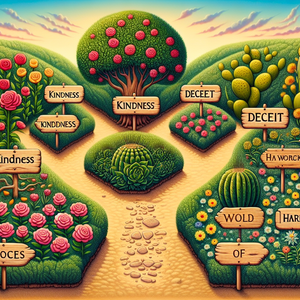Jetzero’s Sustainability Initiatives: Leading the Charge for a Greener Future

At the heart of Jetzero’s operations lies a robust commitment to sustainability. The company’s mission is clear: to create products and services that not only meet market demands but also promote environmental responsibility. This commitment is reflected in the way Jetzero approaches its manufacturing processes, product design, and corporate social responsibility initiatives. Jetzero recognizes that sustainability is not merely a buzzword but a vital aspect of modern business practices. By embedding sustainability into its corporate ethos, the company aims to mitigate its environmental footprint while also appealing to a growing demographic of eco-conscious consumers. This approach is not only beneficial for the planet but also positions Jetzero as a forward-thinking leader in its industry.
Innovative Products Driving Change
One of the key facets of Jetzero’s sustainability efforts is its focus on developing innovative products designed with the environment in mind. For instance, the company has introduced a line of energy-efficient solutions that significantly reduce carbon emissions compared to traditional alternatives. These products, such as high-performance energy systems and eco-friendly materials, are not only beneficial for the environment but also offer consumers economic advantages through reduced energy costs. Additionally, Jetzero has made strides in utilizing sustainable materials in its product design. The company has partnered with suppliers who prioritize eco-friendly resources, ensuring that their supply chain aligns with their sustainability goals. This approach not only minimizes the environmental impact but also supports the growth of green industries. Jetzero’s commitment to innovation extends beyond products as the company invests in research and development to discover new technologies that enhance sustainability in its offerings.
Community Engagement and Local Initiatives
Jetzero's sustainability initiatives extend beyond its product offerings; the company actively engages with local communities to promote environmental awareness and responsibility. Various office locations have launched initiatives aimed at reducing waste, promoting recycling, and encouraging sustainable practices among employees and local residents. For example, Jetzero’s office in San Francisco has spearheaded a community garden project, inviting employees and their families to participate in growing fresh produce. This initiative not only fosters a sense of community but also educates participants about sustainable agriculture and the importance of local food systems. Similar projects in other locations have included beach clean-ups, tree planting days, and partnerships with local environmental organizations. These community initiatives serve a dual purpose: they enhance local engagement and contribute to broader environmental goals. By involving employees and residents in sustainability projects, Jetzero helps cultivate a culture of environmental stewardship that extends beyond the workplace.
Measuring Impact and Future Goals
To ensure that its sustainability efforts are effective, Jetzero has implemented a rigorous system for measuring environmental impact. The company conducts regular assessments to track progress against its sustainability goals, including reductions in carbon emissions, waste management improvements, and resource conservation. These metrics not only guide Jetzero’s initiatives but also provide transparency to stakeholders who are increasingly concerned about corporate social responsibility. Looking ahead, Jetzero has set ambitious goals for the coming years. The company aims to achieve net-zero carbon emissions by 2030, a target that requires ongoing innovation and collaboration across all levels of the organization. To achieve this goal, Jetzero plans to enhance its product line, invest in renewable energy sources, and explore carbon offsetting projects. By committing to these objectives, Jetzero demonstrates its determination to lead the charge for a sustainable future.
Jetzero’s journey towards sustainability exemplifies how a company can make a meaningful impact on the environment while driving business success. Through innovative products, community engagement, and a steadfast commitment to measuring and improving its efforts, Jetzero is not only addressing current market needs but also setting a standard for corporate responsibility. As more companies follow suit, the collective effort to promote sustainability will play a crucial role in shaping a healthier planet for future generations. Jetzero stands as a testament to the power of corporate commitment to environmental stewardship, proving that it is indeed possible to lead the charge for a greener future. By continuously innovating, engaging with communities, and setting ambitious goals, Jetzero is well on its way to fulfilling its vision of sustainability and inspiring others to join the movement.
Sustainability Manager
Unilever, Siemens
Core Responsibilities
Develop and implement sustainability strategies and initiatives aligned with corporate goals.
Monitor and report on sustainability performance metrics, ensuring compliance with environmental regulations.
Collaborate with cross-functional teams to integrate sustainable practices across business operations.
Required Skills
Strong understanding of sustainability principles and environmental regulations.
Excellent project management and communication skills.
Experience with carbon accounting and sustainability reporting frameworks such as GRI or CDP.
Environmental Engineer
Jetzero
Core Responsibilities
Design and implement projects that improve the environmental performance of products and processes.
Conduct environmental assessments and audits to identify compliance issues and areas for improvement.
Collaborate with stakeholders to develop solutions for waste management, pollution control, and resource conservation.
Required Skills
Proficiency in environmental regulations and engineering principles.
Strong analytical skills and experience with environmental modeling software.
A degree in environmental engineering or a related field is typically required.
Renewable Energy Specialist
NextEra Energy
Core Responsibilities
Analyze and assess potential renewable energy projects, including solar, wind, and energy storage systems.
Develop financial models to evaluate project feasibility and return on investment.
Collaborate with engineering teams to design and implement renewable energy systems.
Required Skills
Strong knowledge of renewable energy technologies and market dynamics.
Proficiency in financial analysis and project management.
Experience with regulatory frameworks and incentives for renewable energy.
Corporate Social Responsibility (CSR) Coordinator
Patagonia
Core Responsibilities
Assist in the development and execution of CSR strategies that align with company values and sustainability goals.
Engage with community stakeholders to promote environmental initiatives and corporate philanthropy.
Track and report on CSR performance and sustainability metrics to stakeholders.
Required Skills
Strong communication and interpersonal skills for community engagement.
Experience with sustainability reporting and stakeholder management.
A degree in environmental studies, business, or a related field is beneficial.
Green Product Design Engineer
IKEA, Tesla
Core Responsibilities
Lead the design and development of eco-friendly products that minimize environmental impact.
Conduct life cycle assessments (LCAs) to evaluate the environmental performance of product designs.
Collaborate with marketing and production teams to ensure sustainable materials and processes are utilized.
Required Skills
Expertise in sustainable materials and eco-design principles.
Proficiency in CAD software and product development methodologies.
Experience in research and development in a manufacturing environment is preferred.


